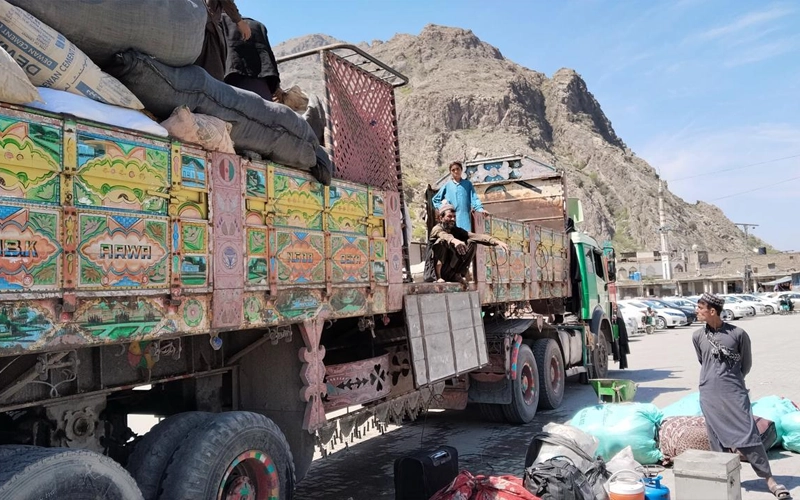- Web Desk
- Yesterday
Afghan refugees start returning amid fears of forced deportations
-

- Web Desk
- Apr 04, 2025

By Tahir Khan
ISLAMABAD: Although the formal repatriation of hundreds of thousands of Afghan refugees has not started yet, dozens of Afghan families are returning to their country voluntarily each day, fearing forced deportation, officials at Torkham said on Friday.
The deadline of March 31 for nearly 800,000 Afghan Citizenship Card (ACC) holders has passed, but transit camps established in Landi Kotal, Khyber district, have not yet begun operations. Senior officials of Khyber Pakhtunkhwa had proposed that repatriation should begin from April 10 instead of April 1.
In a related development, Khyber Pakhtunkhwa Chief Minister Ali Amin Gandapur announced on Friday that his government would not forcibly expel Afghan nationals. However, Gandapur stated at a press conference at KP House in Islamabad that his government would facilitate Afghan nationals who choose voluntary repatriation.
“The government’s policy on Afghan refugees has tarnished Pakistan’s image,” he claimed.
Meanwhile, Amnesty International renewed its concerns regarding Pakistan’s deportation plan.
Also read: Afghan refugees struggle with uncertainty as Pakistan weighs deportation
“The Pakistan government is pushing forward with its plans to arbitrarily and forcibly expel Afghan nationals, including refugees and asylum seekers, as part of the opaque ‘Illegal Foreigners Repatriation Plan,’ which adds to the plight of at-risk Afghans,” read an Amnesty statement posted online.
Between September 2023 and February 2025, at least 844,499 Afghan nationals have been forced to return to Afghanistan “where they are at real risk of human rights violations by the Taliban amid a worsening humanitarian crisis,” according to Amnesty.
Pakistani officials cite security concerns for the decision, stating that “Afghan nationals are involved in terrorism” in the country, particularly in Khyber Pakhtunkhwa and Balochistan.
Afghan government ministers have called for a gradual repatriation. Afghan interim Foreign Minister Amir Khan Muttaqi had previously advocated for a “gradual repatriation,” warning that the forced deportation of a large number of refugees could create problems for the Afghan government.
Immigration officials at Torkham said that 10 families, comprising 152 people, crossed the border on Friday after their documents were verified. They added that a total of 30 families had returned to Afghanistan over the past three days.
The process is proceeding at a slow pace since the transit camps have not yet opened.
On March 7, the Interior Ministry announced that all “illegal foreigners and ACC holders are advised to leave the country voluntarily by March 31, 2025; after that, deportation will commence starting April 1, 2025.”
The ministry stated that the Illegal Foreigners Repatriation Program (IFRP) has been in effect since November 1, 2023, and in line with the government’s decision to repatriate all illegal foreigners, national leadership has now decided to repatriate ACC holders as well.
The UNHCR Representative to Pakistan, Ms. Philippa Candler, said on March 31 that the recent government announcements regarding departure deadlines have once again unsettled the Afghan community in Pakistan.
“The latest directives from the government represent a significant disruption to the fabric of many communities. Dislocation from communities that have welcomed them and a possible forced return to Afghanistan, without a chance to plan how to rebuild their lives there, is unlikely to be sustainable,” she said.




